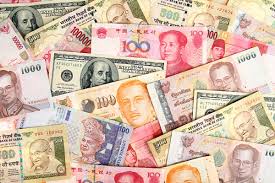In a theater of global politics where every handshake is a performance, Xi Jinping’s upcoming tour of Cambodia, Malaysia, and Vietnam resonates with strategic undertones. More than mere diplomatic pleasantries, this expedition appears to be a calculated maneuver, a victory lap through nations recently impacted by the sharp sting of Trump’s tariffs. Susannah Patton, director of the Lowy Institute’s Southeast Asia program, rightly emphasizes that this is a signal worthy of serious consideration.
The Trade War’s Echoes: A Geopolitical Chess Move
The timing of Xi’s visit is far from coincidental. These Southeast Asian countries, grappling with the repercussions of U.S. reciprocal tariffs, find themselves in a vulnerable position. China, ever the strategic player, is poised to offer potential economic stability and reinforced alliances. This orchestrated tour serves as a potent demonstration of China’s expanding influence, and its readiness to fill the voids left by shifting global powers. One could argue this is a masterfully executed geopolitical chess move, where economic incentives and expressions of solidarity are deployed in tandem.
Regional Power Projection: Beyond Bilateral Courtesies
While official narratives will undoubtedly highlight the strengthening of bilateral ties, the underlying message is a clear assertion of China’s regional dominance. This tour solidifies China’s commitment to Southeast Asia, strategically positioning it as a dependable partner amid global economic uncertainties. It’s a nuanced, yet forceful, declaration of China’s regional hegemony, underscoring the critical role of timing in international relations.
Opinion: Navigating the Complexities of Influence
Xi’s tour presents a multifaceted scenario. On one hand, it’s a shrewd strategy to amplify China’s influence, capitalizing on the economic vulnerabilities of its neighbors. Conversely, it could also represent a genuine endeavor to foster regional stability and economic collaboration. The reality, most likely, exists within the gray area between these two extremes, a delicate balancing act where economic interests and regional dominance are inextricably linked. Southeast Asian nations face the daunting task of navigating this complex landscape, carefully weighing the benefits of closer ties with China against the potential risks of increased dependence. The delicate balancing act of retaining sovereignty while accepting economic help, will be a challenge for the visited countries.
















